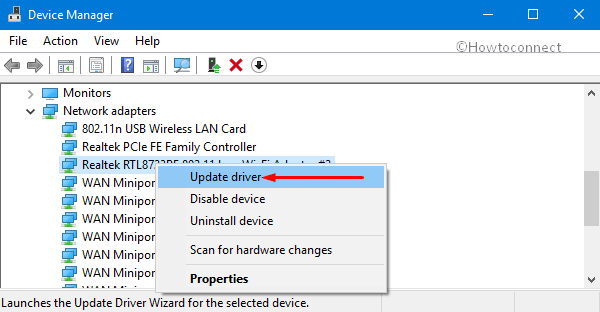

I think that the command “gcc network_test.c -o network_test.out &.
#WIFI DRIVERS FOR UBUNTU CODE#
Printf("error code (errno): %d\n", errno) Printf("connect() return value: %d\n", res) Int res = connect(socket_desc, (struct sockaddr *)&server, sizeof(server)) Socket_desc = socket(AF_INET, SOCK_STREAM, 0) in a terminal run "gcc network_test.c -o network_test.out &. save the below as a file (for example, network_test.c) Also can be disabled from the command line hereĪlso try disabling power management with sudo iw dev wlp3s0 set power_save offĬan you try running this when you have no internet/bad internet?Īlso, can you run this program and tell me what error code you get? (Compare the error code to the description list here: ) Can you try temporarily disabling IPv6 for the connection and see if it makes a difference?. In both “bad internet” and “no internet” wireless-info.txt I saw that you have limited IPv6 connectivity. Replace “nameserver 127.0.0.53” with “nameserver 8.8.8.8” and then sudo systemctl restart NetworkManager and sudo systemctl restart systemd-resolved. What happens when curl/wget an IP address (not a website) with “no internet” and “bad internet”?Īnd when you use IPv4 vs IPv6 for some sites with both “bad internet and “no internet”?Ĭan you doing this when you have no internet and check if it works? Open /etc/nf with sudo gedit /etc/nf. Source for this update: AskUbuntu forums and ElArrayDeJota Here are the commands: sudo apt-get purge bcmwl-kernel-source Thanks to our readers Andres A and Loc_rabbirt for this info.
#WIFI DRIVERS FOR UBUNTU INSTALL#
So apparently to fix this issue in Ubuntu 20.04 and later, we need to purgeĪltogether and install the Broadcom STA DKMS driver instead. This should make sure that the proper WiFi module loads when the user logs in and gnome-session starts. Then, add a new a task and set the “Command” field to the path of your bash script. Open the “Startup Applications” from the GNOME shell menu or run gnome-session-properties from a terminal. Mark it as an executable with: chmod +x wifi-fix.sh Open a text editor and write: #!/bin/bashĪnd save it (example: wifi-fix.sh). We can fix that by making a bash script and scheduling it to run on startup.
#WIFI DRIVERS FOR UBUNTU UPDATE#
This will not work on if you’re on a persistent livesystem since you cannot update initramfs due it being a read-only system. Open the file as root with the command: sudo gedit /etc/modprobe.d/nfĪt the end of the file. You can also prevent the bcma and bcma-pci-bridge drivers from loading altogether by blacklisting them in the /etc/modprobe.d/nf file. Or sudo insmod /lib/modules/5.0.0-23-generic/updates/dkms/wl.ko To remove the bcma and wl modules from the kernel.

So, we use the command: sudo modprobe -rv bcma wl But, we need the kernel to use the wl module instead as that’s the one we built while installing the bcmwl-kernel-source package. Subsystem: Hewlett-Packard Company BCM43142 802.11b/g/nĪs we can see, the bcma-pci-bridge driver is in use. You might see something like this: lspci -kĠ4:00.0 Network controller: Broadcom Inc. To check the kernel drivers handling each of our PCI devices. So I looked into the issue again and came up with a better solution. But building the whole module over and over again seemed unnecessary. My initial solution to this was installing the bcmwl-kernel-source package on startup. I figured I’d do the same thing I did on Ubuntu 19.10, as mentioned in one of my previous posts. After installing Ubuntu 18.04.3 LTS on a persistent live system, I noticed that the Wi-Fi would stop working on every reboot.


 0 kommentar(er)
0 kommentar(er)
